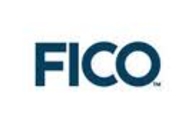

Pega Platform and FICO Blaze Advisor compete in the business process management and decision management categories. Pega tends to have an edge with its integration and case management features, whereas FICO Blaze is better for decision processing and analytics.
Features: Pega Platform offers flexibility, easy prototyping, and strong case management capabilities, focusing on cloud-based offerings and integration services. FICO Blaze Advisor excels in decision processing, analytics, and business rule customization, enabling user-level changes without extensive technical skills.
Room for Improvement: Pega struggles with complexity, high-cost licensing, and slow cloud services, with its low-code claims often needing experienced developers. FICO Blaze Advisor could enhance its user interface and provide more customization options for non-technical users. Both platforms require better customer support and AI capabilities.
Ease of Deployment and Customer Service: Pega Platform offers public, private, and hybrid cloud deployment options but has inconsistent technical support, with varying user experiences regarding support efficiency. FICO Blaze Advisor shows better support handling with community-driven solutions, but both could reduce support costs and improve experiences.
Pricing and ROI: Pega Platform is priced for large enterprises, offering high ROI but deterring smaller clients with complex licensing and high upgrades. FICO Blaze Advisor is also pricey but valued for its decision-making efficiencies and ROI. Both solutions yield significant returns when used by large organizations.
| Product | Market Share (%) |
|---|---|
| Pega Platform | 29.3% |
| FICO Blaze Advisor | 29.4% |
| Other | 41.3% |


| Company Size | Count |
|---|---|
| Small Business | 1 |
| Midsize Enterprise | 2 |
| Large Enterprise | 6 |
| Company Size | Count |
|---|---|
| Small Business | 9 |
| Midsize Enterprise | 15 |
| Large Enterprise | 68 |
Pega Platform provides flexible business process management with a focus on rapid application development and automation through a low-code approach, enhancing efficiency across sectors.
Pega Platform is renowned for its ability to streamline operations with robust automation features, including robotic process automation and decision-making capabilities. Its intuitive interface and workflow management contribute to a reputation for enhancing business processes. Although users face challenges with integration limitations and high licensing costs, they benefit from rapid deployment and efficient process adaptations. The unified architecture reduces complexity, while case management and integration services support digital transformations in sectors such as banking, insurance, and healthcare.
What are the key features of Pega Platform?In industries like insurance, banking, healthcare, and government, Pega Platform is implemented to automate diverse workflows, supporting initiatives from claims processing to customer onboarding. Enterprises use Pega for case management and digital transformations, valuing its out-of-the-box integrations and real-time reporting capabilities to boost operational automation and enhance customer experiences.
We monitor all Business Rules Management reviews to prevent fraudulent reviews and keep review quality high. We do not post reviews by company employees or direct competitors. We validate each review for authenticity via cross-reference with LinkedIn, and personal follow-up with the reviewer when necessary.